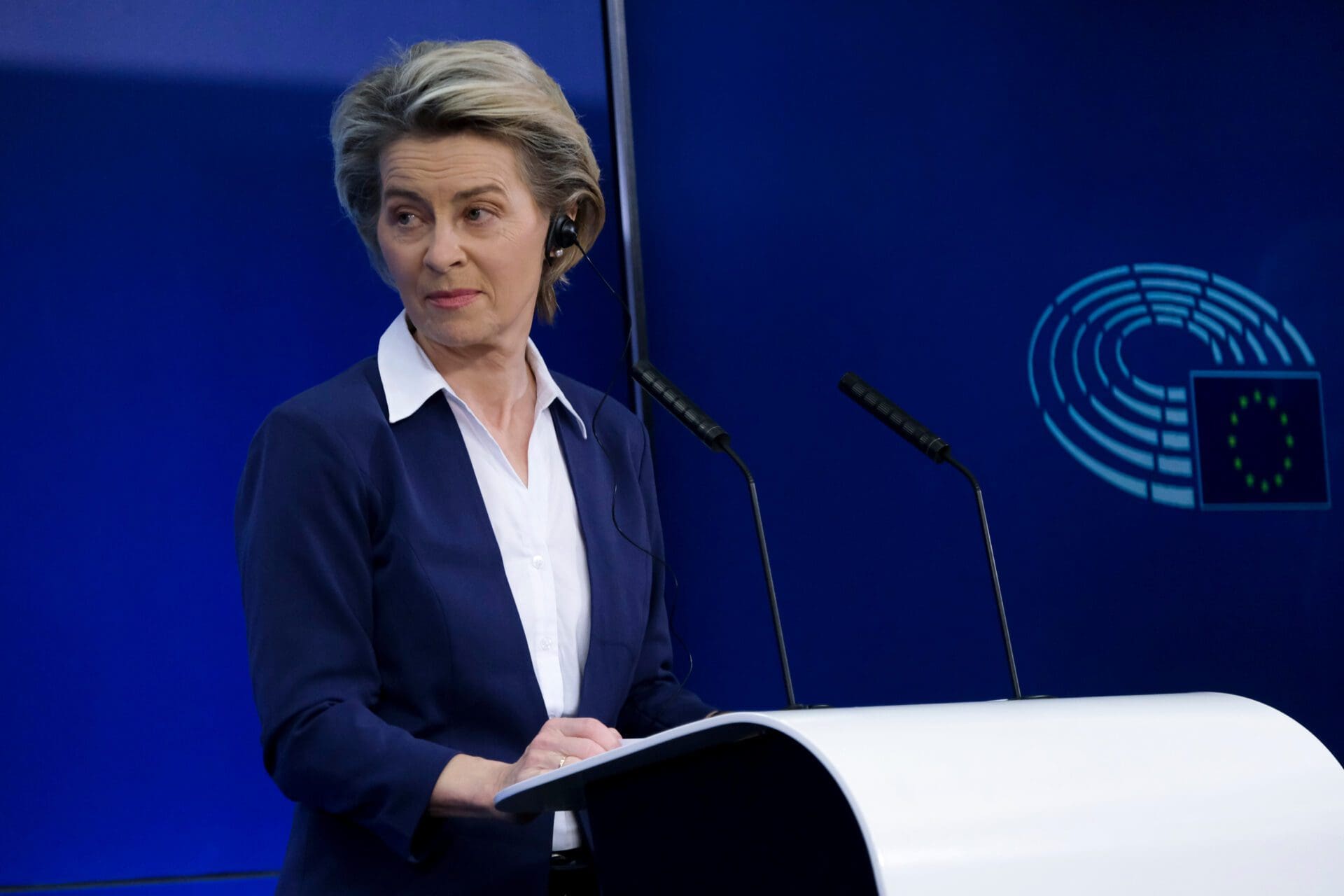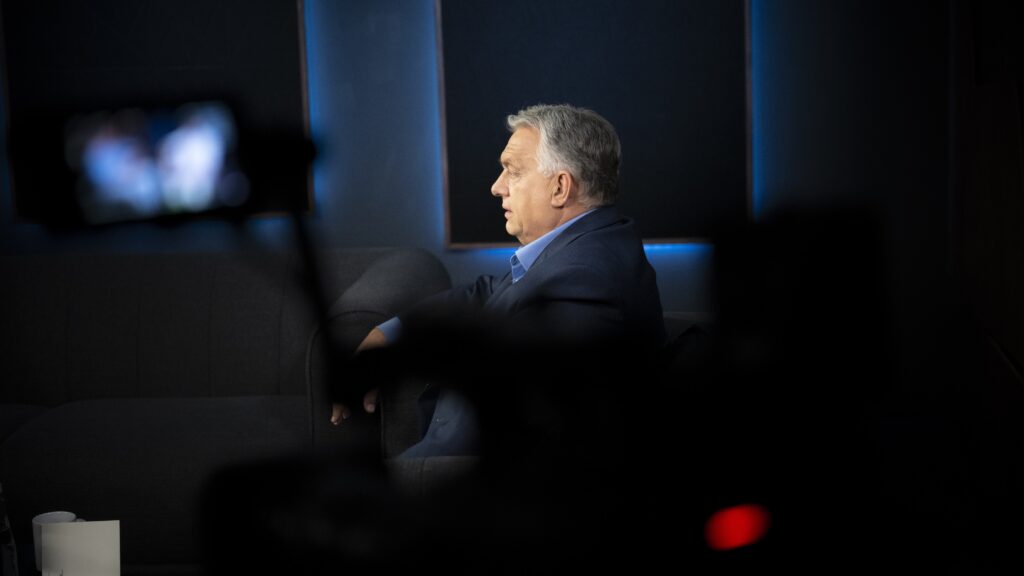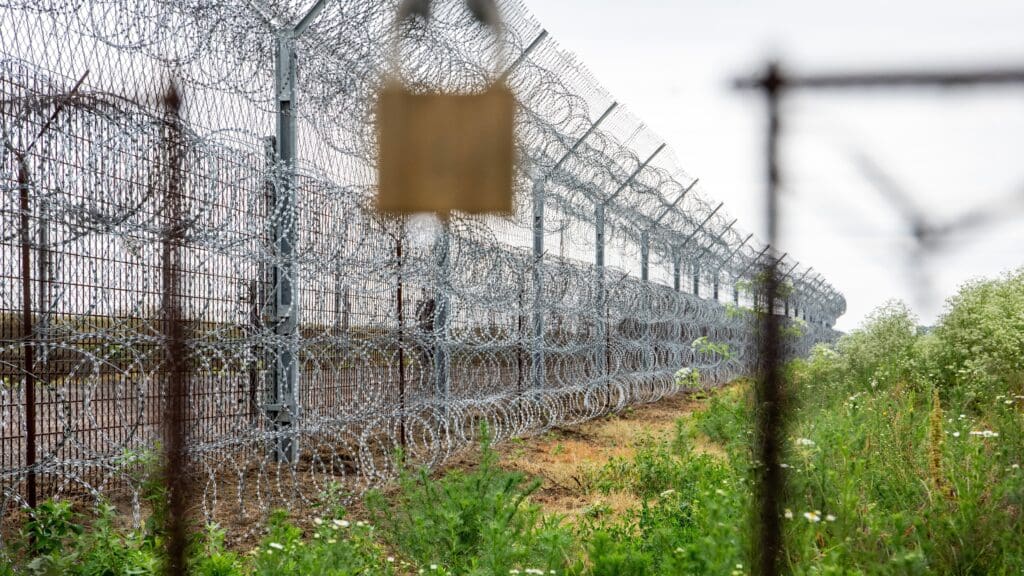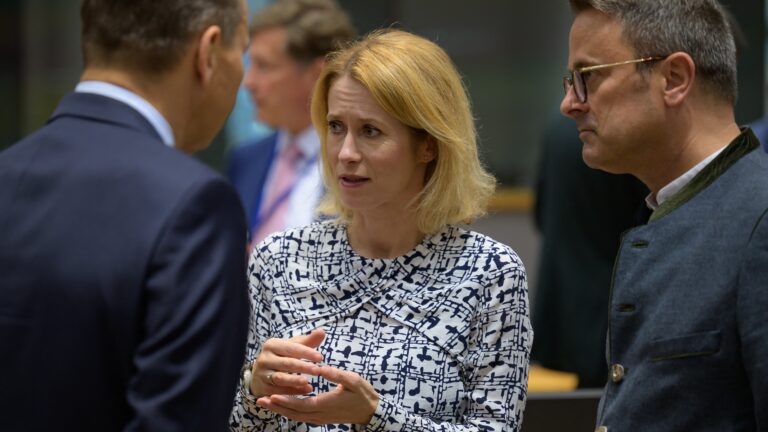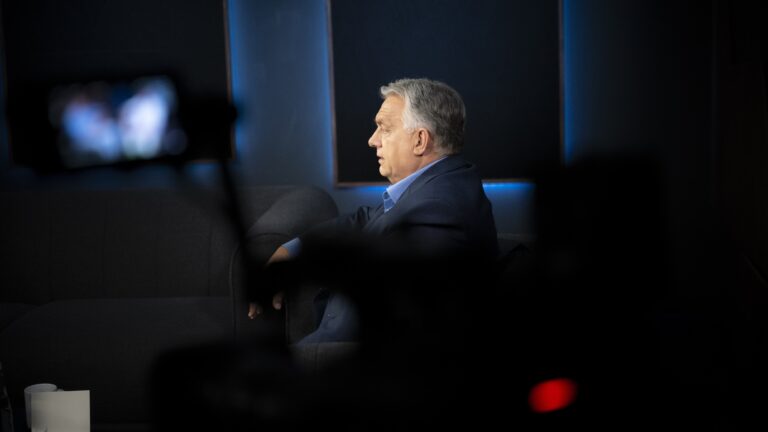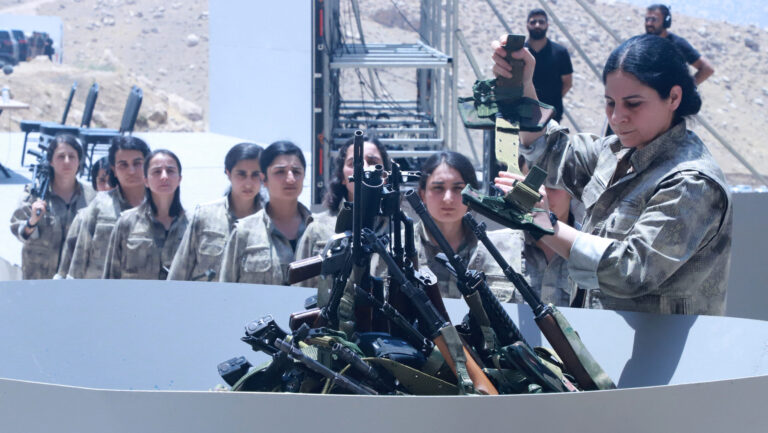On 14 September, in her annual policy speech in Strasbourg Ursula von der Leyen named the countries she would like to see join the European Union as soon as possible. Three countries that deserved to be named by the Commissioner as countries without whom the EU is not complete are Ukraine, Moldova, and Georgia. The Western Balkan countries, however, which have long yearned for EU membership, were mentioned only as a bloc, without any further details. It’s an interesting and important listing of potential EU countries, which tells us a lot about the future towards which this EU leadership would steer Europe, former Socialist MEP Gyula Hegyi said in an op-ed published on Hungarian news site Index.
In his article entitled ‘European Union Digs Itself Deeper into the Cold War’ Mr Hegyi noted that the three countries mentioned by von der Leyen have three distinct features in common. In all three there are territories and enclaves under Russian control or influence that these countries would like to liberate, possibly by force. It follows that with their accession the European Union would find itself in the quagmire of a cold war with Russia that could escalate to a real war at any moment, the author opined.
Political interest overrides the classical principle that the state is equivalent to the land it controls
It is true, of course, that the European Union has already admitted a country partly occupied by a foreign power. Cyprus became a member of the EU in 2004 despite the fact that nearly forty per cent of its territory is controlled by Turkey. This, however, has never prevented the EU from pretending that the Republic of Cyprus is the master and sole representative of the whole island. It is a matter of taste whether we consider this to be a moral stance or hypocrisy, Mr Hegyi argued. So, with Ukraine, Moldova and Georgia it would not be the first time that political interest overrides the classical principle that the state is equivalent to the land it controls.
Democratic and Economic Deficiencies
All three countries in question are rather underdeveloped economically. Their GDP per capita is one-sixth or one-seventh of the EU average. In terms of GDP and economic development in general, they are also lagging behind other European countries also aspiring to EU membership that for various reasons are not among von der Leyen’s favourites. Serbia, Turkey and Belarus all have higher GDPs than the three Georgia, Moldova or Ukraine. The GDP of the poorest EU member state, Bulgaria, is almost three times that of Georgia, for instance. With such a glaring difference between the current member states and the potential newcomers, enlargement would render EU cohesion policy in its present form meaningless. Not to mention the hundreds or thousands of billions of euros in support of Ukraine’s reconstruction and of its economy, most of which of course will have to be disbursed regardless of whether the country joins the EU or not, Mr Hegyi emphasised.
Ukraine, Moldova, and Georgia are also similar in terms of their internal political environment, he noted. In Georgia and Moldova, the former heads of state are in prison, while in Ukraine both former presidents fled the country after their successors declared them traitors. In other words, a most basic criterion of political democracy, namely the peaceful transfer of power does not seem to be working in either country.
According to Mr Hegyi, the enlargement plan is politically motivated, aiming to push forward the frontline with Russia. But political motivation in the EU’s expansion policy is not something bad nor new, the article added, reminding that what started off as Common Market has been enlarged on several occasions for political reasons. The wealthy ‘founding fathers’, West Germany, France and the Benelux countries, had also chosen to include Italy, a country drifting to the left, burdened with the poorer southern regions, as a sixth member of the alliance, partly to ward off the communist threat. Similar political considerations justified the inclusion of Portugal and Greece as well. And, of course, the favouring of the accession of former socialist countries was also influenced by political considerations, partly on the part of Western European governments and partly on the part of Washington. But so far, the EU has offered access to the bloc only to countries that were economically and politically on a par with the EU average.
The Longest Waiting Candidate: Turkey
Ursula von der Leyen did not mention Turkey either by name or by reference. A country that became a member of the Council of Europe in 1950, an associate member of the Common Market in 1963 and a candidate for membership of the European Union in 1999. Mr Hegyi recalled that as a member of the European Parliament and then as a European Commission official he had taken part in accession negotiations with Turkish politicians. Turkey had never been an easy candidate, with reservations, prejudices, and difficult conditions present on both sides. It is a huge, proud country with an imperial consciousness as alive as that of England, the author remarked.
But until recent years no one has explicitly said that Turkey has no place in the European Union.
It is the second strongest member of NATO, with a developed economy, strong cultural cohesion, and a functioning infrastructure. Demographically, it is prosperous, with a youthful population and a life expectancy at birth two years higher than in Hungary. As cliché as it may sound, it is the country of the future. Yes, President Erdogan’s regime has violated democratic norms in many respects, the author conceded, but in the three countries mentioned by Ms von der Leyen, such standards do not even exist. If the European Union took democracy criteria seriously, it would wait for better times before granting access to all four countries. But if it were to enlarge for strategic, geopolitical reasons, it should prefer Turkey. After all, from a security policy point of view, Turkey would bring plenty of added value, while the three post-Soviet countries would be only recipients of European resources.
Budapest’s Advocacy for the Western Balkans
But the announcement by the President of the European Commission may be the most disappointing for the Western Balkan countries. There are four recognised EU candidates in the Western Balkans, and all of them achieved this status in the 2000s: North Macedonia in 2004, Montenegro in 2008, Albania and Serbia in 2009. In February 2018 the European Commission also set an indicative deadline (2025) of admission for the two most advanced candidates, Serbia and Montenegro.
Budapest believes that the Western Balkans have strategic importance for the EU in terms of security and stability
Hungary has long been a supporter of the EU integration of the Western Balkans, both on its own and using the V4 format. Budapest believes, given its geographical location, that the Western Balkans have strategic importance for the EU in terms of security, stability, trade and transit routes. Due to its proximity to the region, the accession of the Western Balkans countries is also in Hungary’s national interest: a matter of national security. Budapest views these states as essential in securing peace and stability in the region and also prefers to define the region as a southern part of Eastern Europe.
‘The European Union has a historic responsibility to give impetus to the enlargement of the Western Balkans, and failure to do so would seriously harm the security interests of the community, including Hungary,’ Hungarian Minister of Foreign Affairs and Trade Péter Szijjártó argued after meeting with his Bosnian counterpart in Budapest in July.
According to the Kroměříž declaration, the Visegrad Group that includes Czechia, Slovakia, Poland and Hungary is committed to fostering EU and NATO aspirants and candidates to gain full EU membership by channelling the Visegrad group’s accession experience and knowledge into these regions. One explicit objective of the Visegrad+ framework is to foster EU enlargement and to present the V4 as an advocate of EU candidates and aspirants. Western Balkan countries also have been given the opportunity to cooperate with the V4 through the Visegrad+ framework and apply for grants from the International Visegrad Foundation as well as the Balkan Fund. Lobbying skills, channelling the knowledge and experience of the V4 countries to the region while making sectoral cooperation certainly benefit the integration efforts and process of the Western Balkan states.
For the Western Balkans, the fact Hungarian Oliver Várhelyi was appointed European Commissioner for Neighbourhood and Enlargement in the von der Leyen Commission in 2019 could greatly facilitate the moving forward of the accession process. Among Mr Várhelyi’s responsibilities is ensuring a credible European Union perspective for the Western Balkans, including progressing on the accession process or supporting proposals on opening enlargement negotiations with the Republic of North Macedonia and the Republic of Albania.
‘We Europeans not only know that Europe’s stability, security and development are not possible without the full integration of the Western Balkans, but we are ready to act. We must now work very hard with the candidate countries to accelerate preparations and eventually full integration,’ Mr Várhelyi told Euractive in July, summarising the desirable direction of EU enlargement policy in the context of the war. And, considering the economic and security needs of the EU, this seems to be a definitely more sensible approach than the one outlined by Ms von der Leyen.

